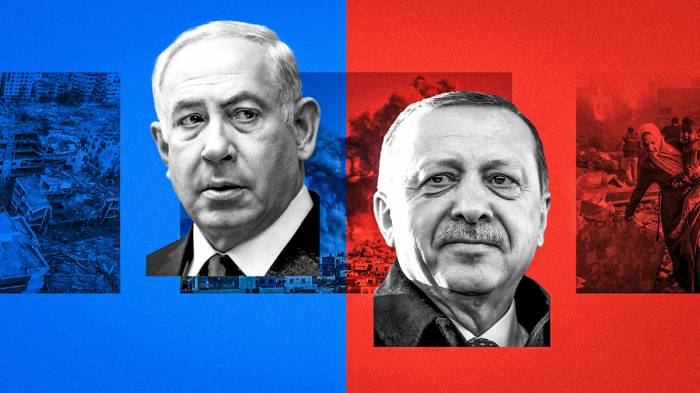The Middle East is undergoing rapid geopolitical shifts, reshaping the interests and strategies of key regional and global players. At the heart of these transformations are Türkiye, Iran , Israel, and Russia, whose policies intersect in Syriaand beyond. How will the balance of power in the region evolve after the potential collapse of the Assad regime? Can Iran maintain its influence in Syria and Lebanon ? What will be the fate of Russia’s military bases? These pressing questions are gaining importance amid the escalating tensions between Israel and Iran, as well as Moscow’s diminishing presence in Syria.To provide insight into these complex dynamics, News.az turned to Professor Dr. Selçuk Çolakoğlu, the founder and director of the Turkish Center for Asia-Pacific Studies in Ankara . In this exclusive interview, he analyzes potential scenarios for the region’s future, assesses the positions of key players, and explains the broader geopolitical implications for the Middle East.

-What are the likely scenarios for a clash of interests between Türkiye and Israel in Syria after the fall of the Assad regime?
-The assumption that Türkiye and Israel have conflicting interests in Syria is premature and somewhat exaggerated. At present, the primary concern is stabilizing Syria and rebuilding its economy. For both Türkiye and Israel, the key priority is mitigating security threats emanating from Syrian territory. In this context, they may find common ground in encouraging the new Syrian government to adopt measures that prevent it from becoming a regional security threat.

-What steps can Iran take to maintain its influence in Syria after the fall of the Assad regime?
-With the collapse of the Assad regime, Iran's influence in Syria has significantly waned. Hezbollah, Iran's primary proxy in Lebanon, has also been weakened by Israeli attacks. In the short term, it seems unlikely that Iran will be able to reassert its influence in Syria. However, Tehran is expected to seek alternative avenues to maintain its foothold in Syria and Lebanon, particularly through Iraq. At this stage, Iran’s immediate priority is to assess the Trump administration’s Middle East policy and to deter a potential Israeli attack.

-Is it possible that Iran will reconsider its strategy in the region, and how might this affect its interactions with other players?
-Over the past year, Israeli strikes on Iranian proxies in Lebanon, Syria, Yemen, and Iraq have significantly curtailed Tehran’s regional influence . In particular, the downfall of the Assad regime makes it almost inevitable that Iran will need to reassess its strategy. To reduce the risk of an Israeli military strike, Tehran has intensified its diplomatic outreach to regional powers such as Saudi Arabia, the United Arab Emirates, and Egypt. At this point, Iran appears poised to adopt a more defensive posture in the region.

-What will happen to Russian military bases and infrastructure in Syria after the fall of the Assad regime?
-The collapse of the Assad regime has also undermined Russia’s influence in Syria . Since establishing a significant military presence there in 2015, Moscow has now found itself compelled to reduce its footprint following the regime’s downfall. Initially, Russia evacuated its military bases, and while their official status remains unchanged, it is unlikely that Moscow will be able to use them as it once did. For now, Russia may attempt to maintain a nominal presence at these bases, but if tensions arise with the new Syrian government, it may ultimately be forced to dismantle them.

-What is the likelihood that Russia will seek cooperation with other major players in the region to maintain its influence?
-At present, Russia’s top priority remains the ongoing conflict in Ukraine . Resolving this issue in its favor is paramount for Moscow. Consequently, its interests in the Middle East have taken a back seat. However, as its influence in Syria diminishes, Russia may seek alternative footholds in the region. Libya, and particularly the port of Benghazi, could emerge as a strategic substitute for the naval base in Tartus, allowing Moscow to maintain a presence in the Mediterranean.































